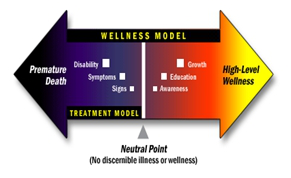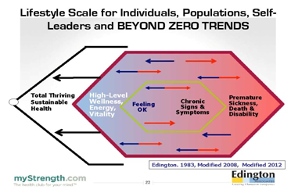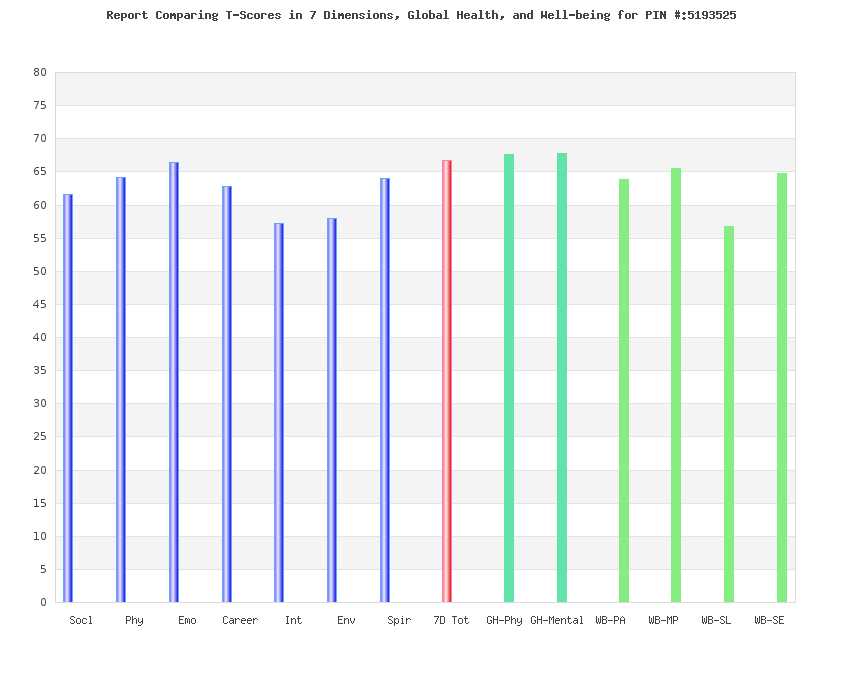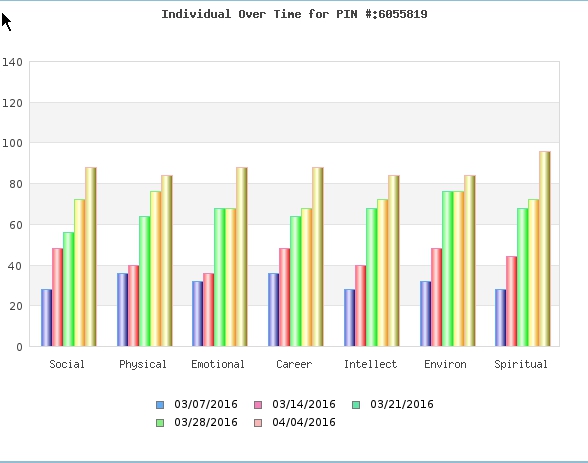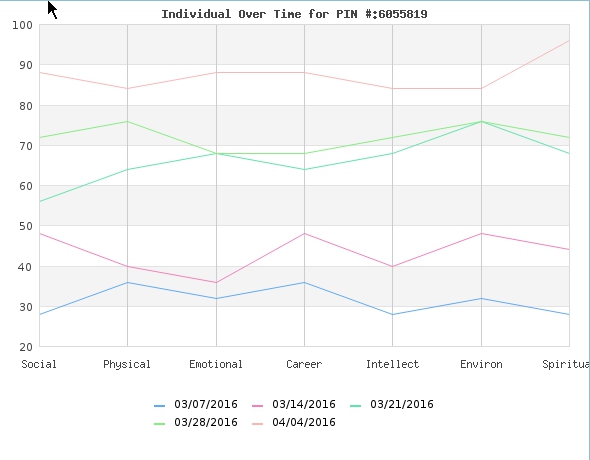The 7-Dimensional Wellness model includes the dimensions of Social, Physical, Emotional, Career, Intellectual, Environmental and Spiritual Wellness.
Social
Social wellness is the process of creating and maintaining healthy relationships.
The Social dimension of wellness encourages contributing to your human and physical environment for the common welfare of your community. It emphasizes interdependence and cooperation with others. Social wellness acknowledges that I am part of a family, community, group or circle, not the center of it. Social wellness includes the pursuit of harmony within your relationships and family that cultivated positive communication that is direct, honest and resolves conflicts.
Physical
Physical wellness is not only the process of having a flexible, aerobically fit body.
The physical dimension encourages regular physical activity that produces cardiovascular endurance, flexibility and strength to pursue everyday life and leisure activities. The physical dimension encourages knowledge and behavior consistent with good nutrition and discourages the use of tobacco, drugs and excessive alcohol consumption. It includes activities that contribute health and wellness including seat belt use, getting 7-8 hours of sleep per night, managing disease, implementing medical self-care and appropriate use of the medical system.
Emotional
Emotional wellness is the process of creating and maintaining a positive realistic self concept and enthusiasm about life.
The emotional dimension wellness emphasizes an awareness of feelings and acceptance of the fact that you create your own feelings. Emotional wellness includes the degree to which you feel positive and enthusiastic about yourself and life. It includes the capacity to talk about feelings of fear, hurt, anger, sadness and joy, and to manage related behaviors. This includes being able to realistically asses your limitations, develop autonomy and to cope effectively with stress and ego.
Career
Career wellness is the process of making and maintaining choices that are meaningful and that contribute to your own personal growth, as well as to the growth of your employer and your community.
The career dimension, occupation or personal work, includes preparing and continuing to prepare for work you enjoy. It includes helping to create a healthy organization that contributes to your own and other's well-being. Occupational wellness is related being responsible to your work and the ability to balance work with the rest of your life.
Intellectual
Intellectual wellness is the process of using your mind to create a greater understanding of yourself and the universe.
The intellectual dimension encourages creative, stimulating mental activities. An intellectually well person uses the resources available to expand knowledge, improve skills and increase the potential for sharing with and contributing to others. Intellectually well people use intellectual and cultural activities to question themselves, to re-examine judgments and questions authority.
Environmental
Environmental wellness is the process of making choices to create sustainable human and ecological communities, improving qualities in air, water, land and space.
The environmental dimension recognizes that we are accountable for the quality of air we breathe, nourishment we seek, water to quench our thirst and the space to grow. The environmentally well person takes personal and social responsibility for creating sustainable communities that include all of earth's creatures, encourages minimizing use of disposable products, evaluates purchases and conveniences base upon environmental impact.
Spiritual
Spiritual wellness is the process of 'experiencing life' while seeking meaning and purpose in human existence. Spirituality allows one to have consistency between values and behaviors.
It includes the development of a deep appreciation for the depth and expanse of life, death and understanding of universal consciousness, (i.e. the 'master stories' or 'archetypes' that represent a commonality or biological imprints derived from the experience of the different races and are present in the unconscious of all individuals). Spiritual people are strongly aware of a wellspring of inner power and development of soul and that there are many paths to take in 'experiencing life' and that every spiritual tradition recognizes and teaches the basic precepts or laws of wise and conscious human conduct, (J. Campbell, The Power of Myth). Spirituality allows one to have consistency between values and behaviors because of the depth of understanding and precepts that re integrated into our 'spiritual Practice' within everyday life of work, family and relationships, (J. Kornfield, A Path with Heart). Generic principles of spiritual wellness include the acceptance of the concept of 'wholeness', i.e. connection with everything in creation. Spiritual wellness includes three working principles: acceptance of: (1) individual uniqueness, (2) diversity and (3) the need for community or bonding (Miriam Therese MacGillis, O.P. Genesis Farm).
Back
Next
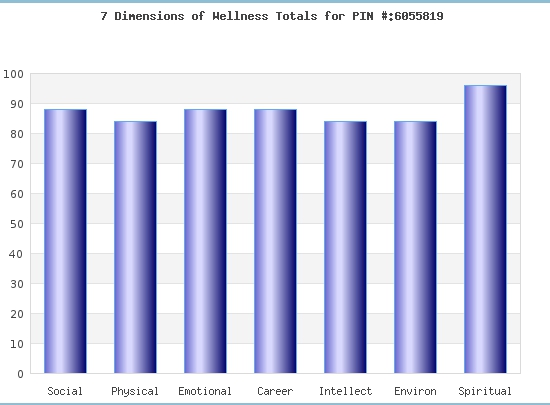 Individual Scores Compared with Group Averages
Individual Scores Compared with Group Averages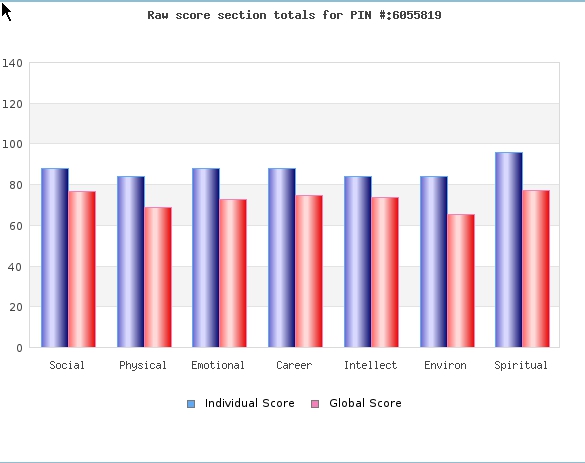 Individual Percentiles Compared with Group
Individual Percentiles Compared with Group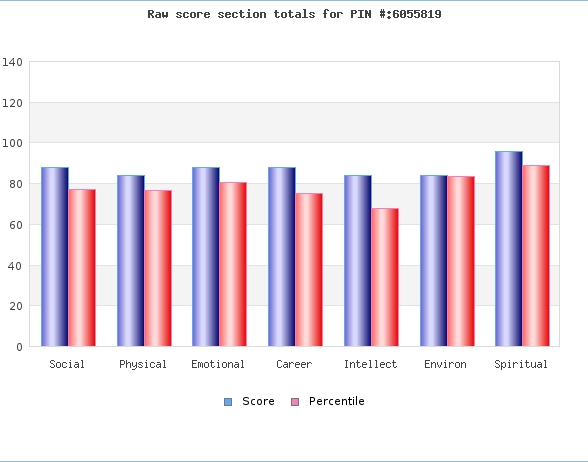
 Individual Scores Compared with Group Averages
Individual Scores Compared with Group Averages Individual Percentiles Compared with Group
Individual Percentiles Compared with Group Time Tracking Report (Bar Graph)
Time Tracking Report (Bar Graph) Group vs Group Scores
Group vs Group Scores  Group vs All Scores
Group vs All Scores 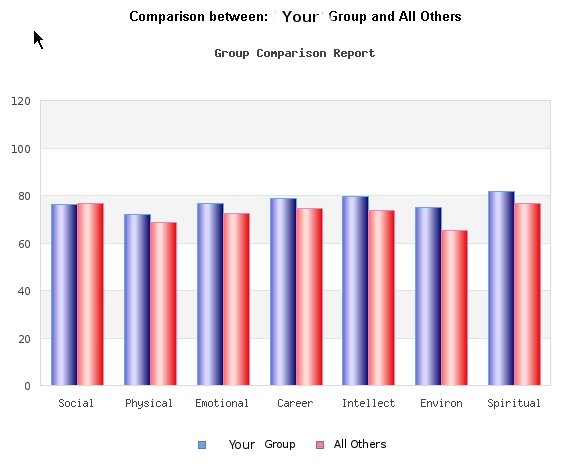 Work Category Breakdown
Work Category Breakdown  Individual vs Group
Individual vs Group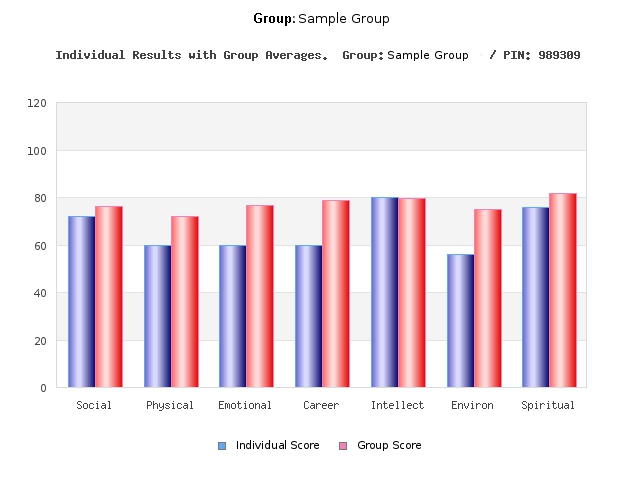 Individual Percentile Scores vs Group
Individual Percentile Scores vs Group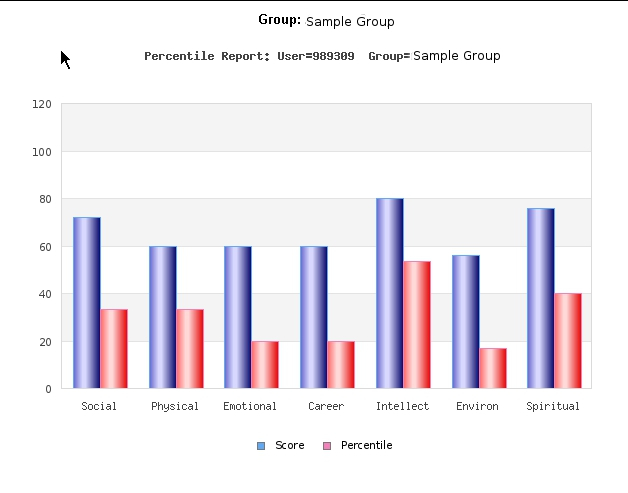 Individual Percentile Scores vs All
Individual Percentile Scores vs All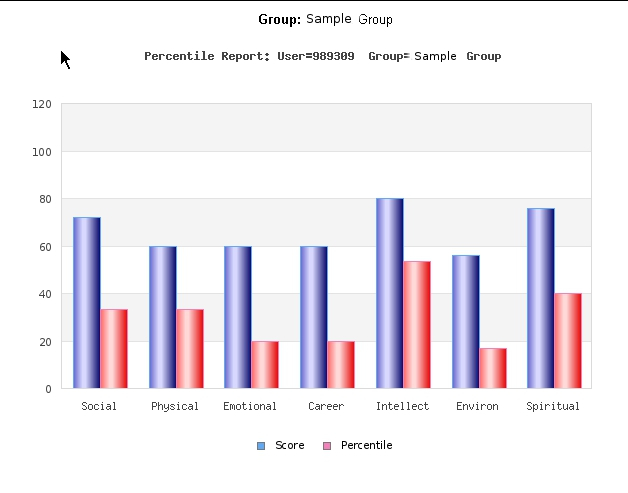
 Group vs Group Scores
Group vs Group Scores  Group vs All Scores
Group vs All Scores  Work Category Breakdown
Work Category Breakdown  Individual vs Group
Individual vs Group Individual Percentile Scores vs Group
Individual Percentile Scores vs Group Individual Percentile Scores vs All
Individual Percentile Scores vs All
